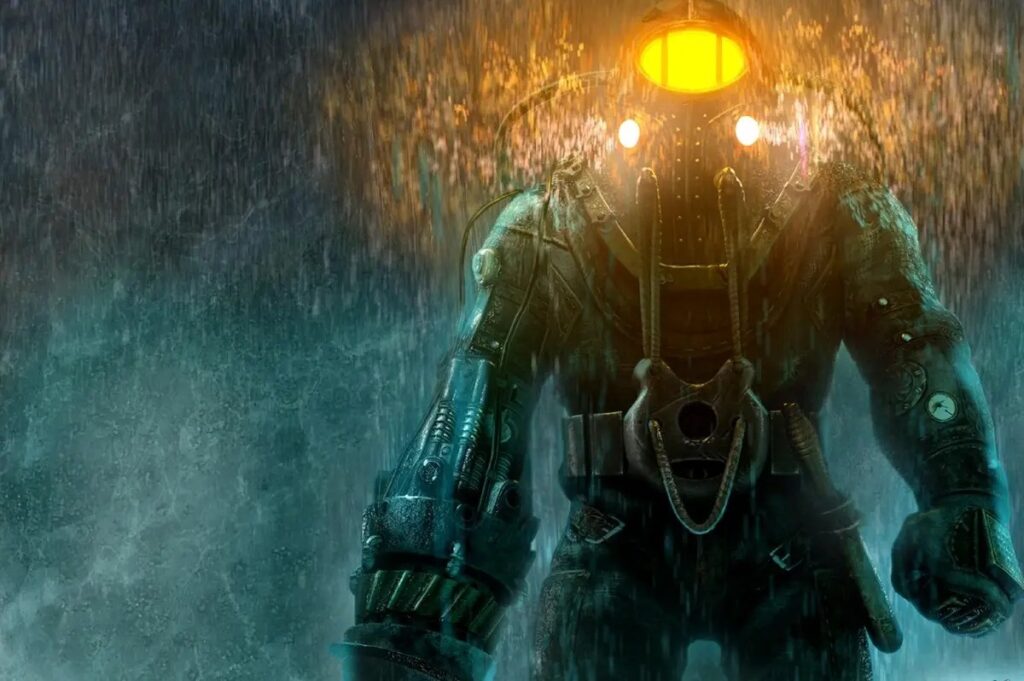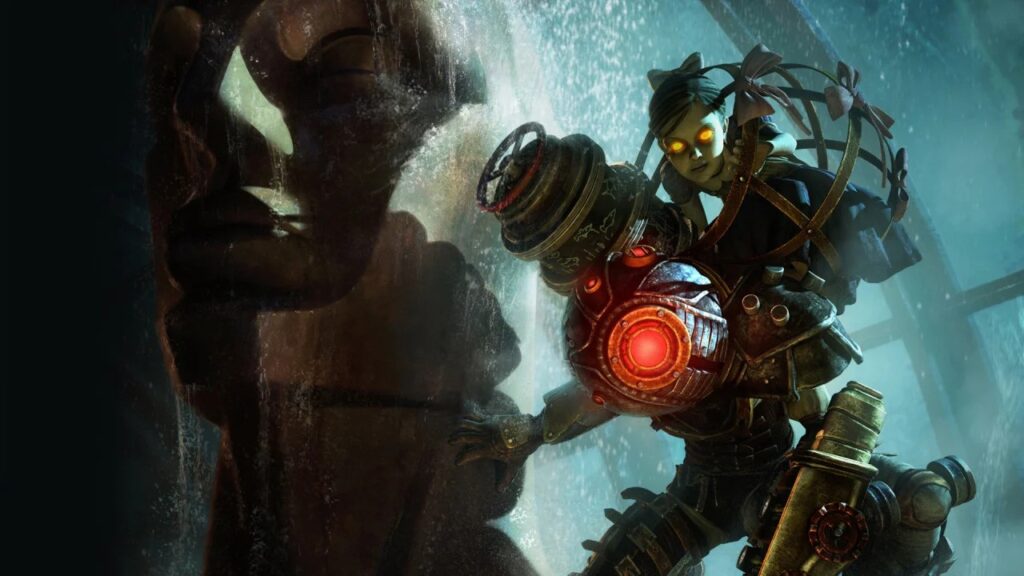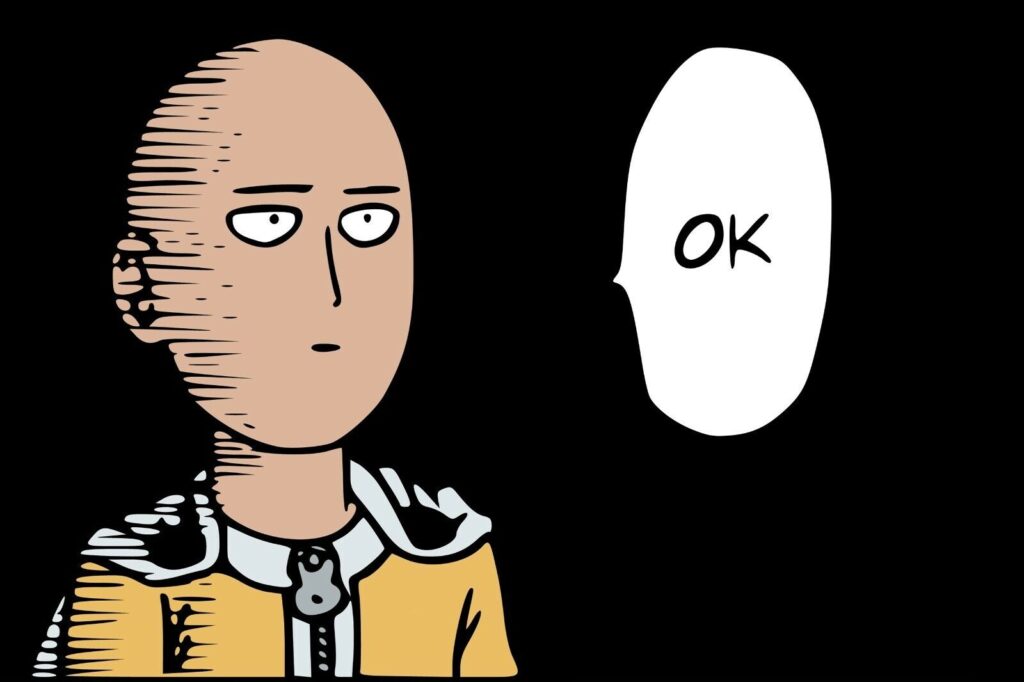I recently replayed Bioshock and, having now familiarized myself with Ayn Rand and her ideology, it made for a much richer experience as I was now able to appreciate its critique of objectivism. It takes Atlas Shrugged‘s premise (John Galt goes off and creates his own secret utopia of the world’s greatest minds unshackled from the rules and regulations of society), and says “okay, this is what would happen next”. I love how the game opens with Andrew Ryan explaining his ideology and then reveals the grandeur of Rapture in such a awe-inspiring way. It’s the same sort of one-sided fantasy artifice that Rand constructs in her own novels, to the point where you could go “wow, this guy might be on to something”… and then, the second you arrive in Rapture, you find that the entire thing has turned into a hellscape due to the inherent flaws of unrestrained selfishness. It is an unusually bold and politically-charged stance for a AAA video game to take, especially for one released in 2007, and it’s part of the reason why Bioshock remains an all-time classic to this day.
However, this got me really curious about Bioshock 2: I had only played a little bit of it around the time it released, but I was aware that its story revolved around taking the opposite route and critiquing collectivism. As a left-leaning individual, I was fascinated to see how they could criticize collectivism as effectively as they took down objectivism. Obviously I’m biased on the topic, but I was legitimately curious to see what they would come up with.

…well, turns out that they kind of fumbled the ball, because Bioshock 2‘s take on collectivism is really strange and nowhere near as effective as its predecessor was.
In all fairness to Bioshock 2, a little context is necessary to explain how this game came about. Irrational Games developed the first Bioshock, with Ken Levine acting as the creative lead. However, for Bioshock 2, the project was given to 2K Marin. Parent company 2K Games wanted a sequel to be developed in a timely manner while Ken Levine and Irrational Games took some time to destress and develop their own Bioshock sequel at their own pace. 2K Marin was made up of some former Irrational Games staff, but it was created with the express purpose of delivering a Bioshock sequel while the iron was still hot. So, while the game does share some DNA with its predecessor, its creative team were largely newcomers to the series, which would explain some of the differences in its writing and feel.
Also, I’m not sure if I really need to clarify this, but obviously:

Bioshock 2‘s narrative and collectivist critique revolves around the antagonist, Sophia Lamb. She is a renowned psychiatrist who was invited by Andrew Ryan to join the population of Rapture. However, he somehow missed the fact that she was a dedicated altruist and she soon tried to spread her beliefs throughout the citizenry of the city. Lamb viewed the human race as inherently selfish and tried to raise her daughter, Eleanor, in strict isolation to try to spread her ideology to her.
When Ryan realized that Lamb was undermining the ideology his city was built upon (selfishness is a virtue in objectivism), he began seeking ways to crush her movement. When other methods failed, he had her arrested and imprisoned in a secret facility where all of Ryan’s undesirables were exiled from the rest of the city. She would eventually unite the prisoners and escape, but discovered that, in her absence, Eleanor had been abducted and turned into a Little Sister. She would eventually locate Eleanor, kill her Big Daddy protector, codenamed Subject Delta (your player character), and did her best to reverse the physical and mental conditioning that Eleanor had undergone as a Little Sister. They did manage to restore Eleanor’s memories, but they were unable to remove the ADAM slug which had been implanted in her and Eleanor still harboured an intense bond with Subject Delta, who she held dearer than her own mother.
Soon thereafter, the events of Bioshock would play out and, with the deaths of Andrew Ryan and Frank Fontaine, Sophia Lamb would make moves to become the de facto leader of the populace of Rapture, uniting most of the city under the banner of her movement, which she dubbed “The Family”.
This brings us to my first criticism of Bioshock 2‘s critique of collectivism: The Family resembles a traditional cult far more than it does any political collectivist movement. Like, sure, the game will have all sorts of graffiti scrawled saying “We before I” and Sophia Lamb might talk about how she will redistribute wealth by intentionally losing at poker, but we don’t actually see this altruism play out or how it has made Rapture any different than it was under Ryan and/or Fontaine’s selfishness-above-all-else rule. The place is still an unlivable hellhole after nearly ten years of Lamb’s rule of the city, inhabited by a bunch of murderous, ADAM-addled psychos. Sure, they follow Lamb’s orders, but they also followed Ryan and Fontaine, so this isn’t a new development, it just seems to be how Splicers operate: they follow whoever controls the ADAM. From what we can see in-game, The Family is a cult of personality with little ideology beyond “do what Lamb says”.
This is just unfortunate – if they actually wanted to critique collectivism, one of the most effective ways to do that would be to give us some sort of contrast between how the city operates under Ryan and Lamb, but we just don’t get that. Having a bunch of raving, drug-addicted psychos roaming the streets made perfect sense for Bioshock‘s critique of extreme selfishness. But a city united under collectivism, which is all about trying to build communities for mutual benefit, why are they still a bunch of murderers and psychos? What the hell has Lamb been doing the past ten years? You’d think that she’d try to get the city back in order at some point, right?
Now, I will admit that this could be because the writers were taking a centrist position, that “extreme selfishness and extreme altruism are just two side of the same coin!” which is why their results are so similar. This is entirely possible, but even if it was the intent, I still think that their critique of collectivism was extremely weak in comparison to their critique of objectivism. Ultimately, I think we really know why Rapture isn’t much different than it was in the first game: 2K Games wanted the game to play like its predecessor, so they just kept things the same and didn’t really worry about how that might undermine their game’s themes.

Ok, so Rapture isn’t any different than it was in the original game. But how about Sophia Lamb herself, can we glean any social commentary from her philosophy?
…not really? Or, at the very least, it’s nowhere near the same level as Andrew Ryan.
Like I said before, Sophia Lamb’s core belief is that humanity is inherently selfish. She learns that Jack (the player character of Bioshock) was subjected to mind-conditioning that took away his free will and she becomes obsessed with the idea of removing a person’s sense of self. This conditioning, combined with ADAM’s ability to retain the genetic memories of the person(s) it was harvested from, could allow you to splice a person of strong moral fortitude who has the memories of hundreds (or thousands) of individuals, losing their sense of self in the process. Lamb aspires to create this figure to become a selfless Ubermensch that will inspire everyone to give up their self-interest for good.

So, like, you can kind of see why this isn’t landing for me the same way the original Bioshock did, right? Bioshock 2‘s take on collectivism is a pure fantasy that literally no one in real-life is advocating for. Don’t get me wrong, it’s a decent video game narrative in its own right, but it’s not saying things about real-world political concepts and philosophy the way that its predecessor did. It reminds me of what I have said about the whole Inception vs The Matrix debate: one’s saying things about real-world topics in an insightful manner that demands that you engage with it on a deeper level, and the other’s just a fun action romp. You can enjoy either, but don’t try to tell me that the fun action romp’s got as many layers as the other.
Now, to be fair, there is a classic, collectivist philosophical dilemma at the core of this game’s narrative. By coincidence, the procedure that turned Eleanor Lamb into a Little Sister has left her uniquely suited to absorb the amount of ADAM necessary to create Sophia’s Ubermensch. As a result, Sophia decides that Eleanor’s wants and needs have to be sacrificed for the “greater good” of inspiring others to embrace altruism. This is pretty basic philosophy and it does give the game some depth, but it doesn’t have nearly the same kind of bite as the first game’s more pointed commentary. Like, okay, a collectivist movement built around a cult is probably going to justify doing bad things to achieve dubious ends.
Furthermore, if we’re being honest, Sophia Lamb’s beliefs seem to hinge more on humans being inherently selfish than they do on collectivism. Throughout the game, she taunts your character for being a mindless drone, but if you choose to do good actions (rescuing Little Sisters and sparing some NPCs’ lives), she gets angry that you’re defying her beliefs in humanity. This also ties into the game’s endings, where your choices either result in you proving Lamb right by acting selfishly (the bad endings), or wrong by being merciful to others (the good endings).
I guess this is just me complaining about spoiled expectations: Bioshock had interesting things to say about real-world politics and philosophy, so I assumed that Bioshock 2 would as well. Now, this is entirely speculation, but I believe that this decision to make Bioshock 2 revolve around the opposite political extreme than its predecessor dictated how much more shallow the real-world political critique in this game ended up. Like, criticizing objectivism is super easy, even I can do it. Criticizing collectivism, literally “doing the best for the common man”, though? Yeah… uh, I guess we’ll make up a whole new, tangentially-related collectivist offshoot philosophy for this game. Is that bad? No, it’s a different approach, but it does not resonate with me anywhere near as deeply as Bioshock‘s approach did.
And that’s just a shame.
If you liked this article…
I hate ads. You hate ads. In order to stop polluting my site with obtrusive and annoying ads, I’ve elected to turn them off on IC2S. That said, writing still takes time and effort. If you enjoyed what you read here today and want to give a token of appreciation, I’ve set up a tip jar. Feel free to donate if you feel compelled to and I hope you enjoyed the article! 🙂